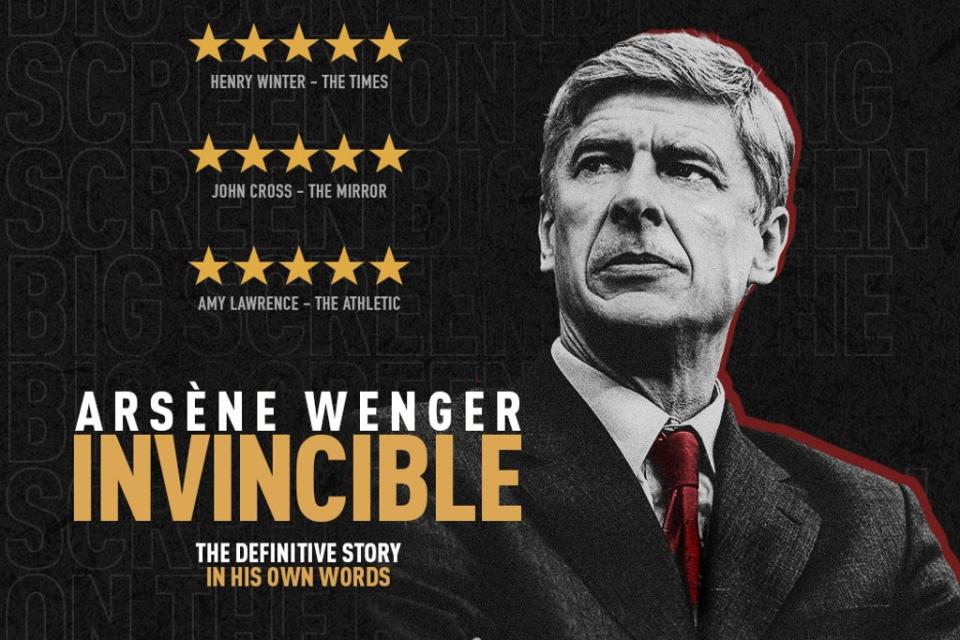Arsene Wenger: Invincible review - Film succeeds where book failed to offer true insight into Arsenal legend

Arsene Wenger’s new documentary may be titled ‘Invincible’, but in reality the film proves the Frenchman is anything but.
This, we learn, is a man who was sick after defeats such was the impact they had and, while he still has a great love for Arsenal, the painful end has clearly cut him deep.
“I identified myself completely with the club and that was the mistake I made,” says Wenger. “Now there is no special reason for me to go there. All the rest is purely emotional and that is less important.”
Those words come during the final 15 minutes of Wenger’s new film, which is in cinema’s today and will be available to stream later this month.
The documentary could easily have been 90 minutes of lauding Wenger for his achievement of guiding Arsenal to an unbeaten Premier League season in 2003-04, but instead it also looks to delve into the more painful aspects of the Frenchman’s time in north London.
In comparison to his autobiography, ‘My Life in Red and White’, the film goes deeper with Wenger and that is perhaps partly down to the influence of journalist Gabriel Clarke, who helped produce it.
Much of the documentary is spent examining Wenger’s glory years, his flying start in winning the double in 1997-98 and, of course, the Invincible season of 2003-04. But it is the finale of the film, which looks at Wenger’s final years at Arsenal, that provide the most interesting insight.
“Highbury: my soul. The Emirates: my suffering,” says Wenger, and from that moment on, for the final 15 minutes or so, the tone of the film switches.
It is here that we get a real insight into Wenger. It is rare to see him like this, so brutally honest, and perhaps it is only because three years have passed since he left Arsenal that he can truly open up.

He himself has confessed he did not think he would reveal so much and the final scenes, which are centred on his final home game with Arsenal, are particularly illuminating.
“It’s the end of your life, at least of one life, like a funeral. You think about when you arrived, all the players that you managed, because you realise that it’s the end,” he says. “I managed to control my emotional side. But, of course, the end of a love story is always sad.”
Others wade in too, with Patrick Vieira adding: “Arsene left Arsenal out of the back door, but not even the back door. I would say the back window.”
But, in the end, pictures tell more than words and the footage, unseen before, of Wenger in tunnel before he walks out at Emirates Stadium one last time is the most revealing.
He is pacing around, uncomfortable about what is to come, and there is barely a flicker of emotion on his face. The end has finally come and it feels like Wenger doesn’t want to believe that’s the case.
It is here that we get a real insight into Wenger and we learn that, in reality, he is human and not ‘Invincible’.
Arsène Wenger: Invincible is in cinemas from 11 November and on Blu-ray, DVD and digital download from 22 Nov.
Read More
Arsenal made ‘huge mistake’ not finding role for Arsene Wenger after management, says David Dein

 Yahoo Sport
Yahoo Sport 





































